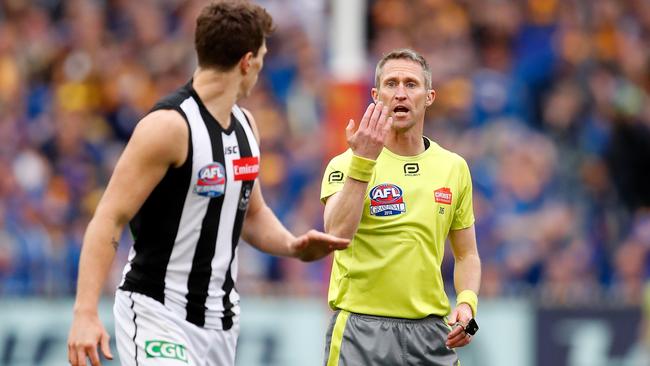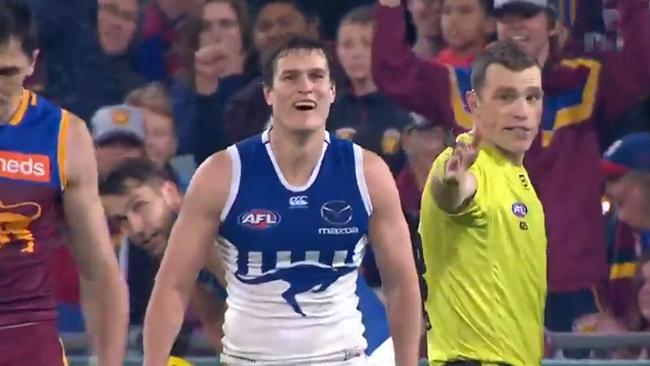The awful truth about AFL umpires: how often do the umps get it wrong?
We’ve all seen crook AFL umpiring decisions, but how often do the umps really get it wrong? The results of a study into the calls that change the game we love will shock you.

VIC News
Don't miss out on the headlines from VIC News. Followed categories will be added to My News.
Footy fans have long suspected it, but research has now proven that AFL umpires get one in every five decisions wrong.
Close matches and umpire inexperience are the most likely cause of errant whistleblowing.
But home ground advantage, what quarter of the game it is and crowd size did not affect decision-making performance.
A study of 8000 decisions analysed by a panel of expert umpires found they got it wrong in 21.8 per cent of cases.
Highly experienced umpires had an error rate nearly 6 per cent better than those who had not taken the field as often.
The Deakin University research found games where the margins were smaller have an umpiring error rate of 22.7 per cent.
Out of the 8001 decisions looked at 6260 were found to be correct, 1162 missed and 579 unwarranted.

Lead author Sean Corrigan said on average umpires made 40 decisions a match, of which 32 were right, six missed and three unwarranted.
“As the score differential increases, umpire’s decision-making accuracy improves,” Mr Corrigan said.
He said umpires could have a bias towards “potentially preventing a team from a scoring opportunity by avoiding making decisions that could impact the scoreboard”.
“Decision-making performance improved as the level of experience attained by the umpire increased, with more missed decisions being made by umpires of low experience and less incorrect decisions being made by highly experienced umpires.
“While the number of decisions made was reduced in the final quarter and quarter segment of matches, there were no changes in umpire’s decision-making accuracy across matches.”

Researchers also found umpires tended to make more missed and less unwarranted decisions that favour the defending team in the backline field of play.
The accuracy of the 8001 decisions was assessed by a panel of four umpires who analysed all decisions from the 2014 home and away season made by 32 umpires.
The research was published in the Journal of science in Medicine and Sport.
Mr Corrigan also presented the findings to the AFL Umpiring Department, where he worked as a strength and conditioning coach until 2016.
RELATED: AFL ADMITS FREE KICK BLUNDER
AUSTRALIA’S SWIM TEAM ROCKED BY DOPING SCANDAL
3AW BREAKFAST STAR’S UNLUCKY IRISH ENCOUNTER
“Developing anxiety management practices and incorporating high anxiety situations within training may be beneficial,” he said.
“The increased error rate of inexperienced umpires, caused by a larger number of missed decisions, may be attenuated by teaming inexperienced umpires with those of a high level of elite experience as they miss less decisions,” Mr Corrigan said.


